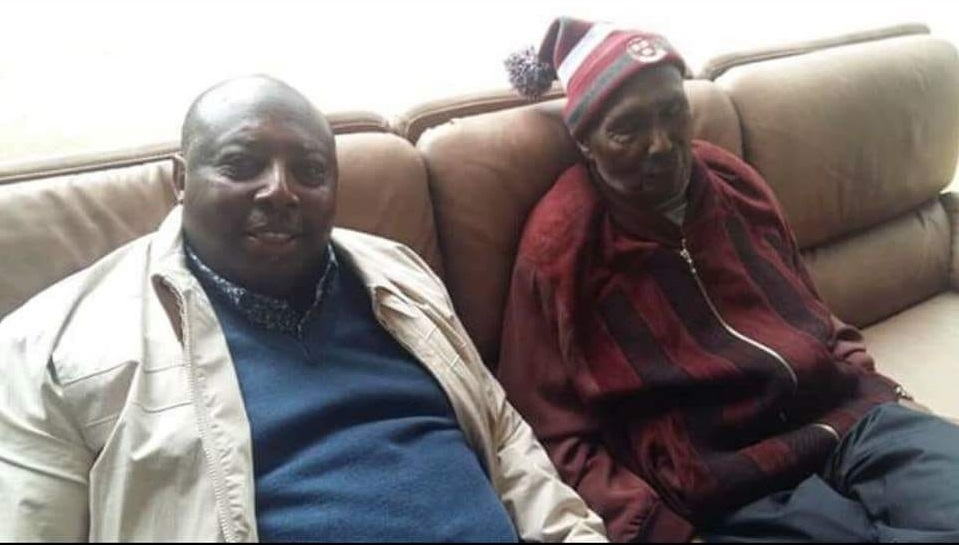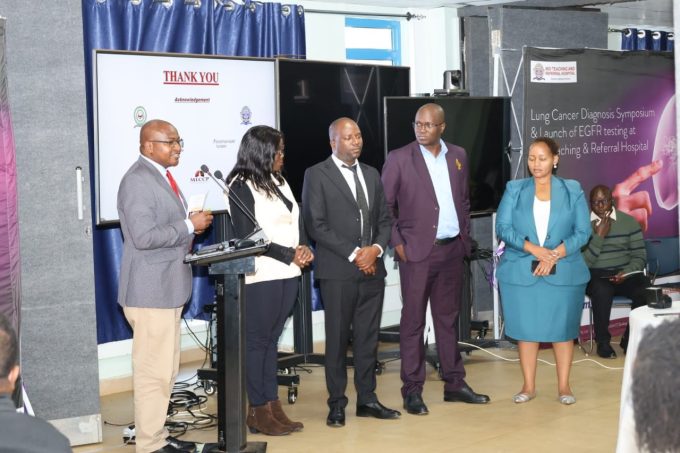Cancer has become the new death sentence. The sound of it brings panic and little hope. Last month, a woman in Naivasha and a man in Laikipia committed suicide after being diagnosed with the killer disease.
This came after a wave of prominent Kenyans, Bob Collymore (Safaricom CEO), Joyce Laboso (Bomet Governor) and Ken Okoth (Kibra MP), who died of cancer.
This drives a notion among Kenyans that if the rich people who have resources at their disposal can die of cancer, then, they do not stand a chance. In the latest development, Kenyan tycoon Chris Kirubi released a video this month revealing he has been cured of cancer, offering a ray of hope that cancer is indeed treatable.
The questions that linger is, how much did it cost him and can mwananchi wa kawaida afford it?
At the beginning of his video to investors, managers and board members of Centum Investment, Kirubi says, “I would like to appeal to all our members and investors, you need to check with the pathologist in the hospital and the clinics.”

John Hopkins Medicine defines a pathologist as a medical healthcare provider who examines bodies and body tissues. He or she is also responsible for performing lab tests. A pathologist helps other healthcare providers reach diagnoses and is an important member of the treatment team.
Significant Barrier
In Kenya, however, there are only 80 pathologists in both public and private hospitals and the majority are concentrated in Nairobi County. This implies a shortage of this profession who can help detect cancer in its early stages.
The price for tests that pathologists carry out range from Ksh1,000 – Ksh 15,000 averagely. The middle-upper class of Kenyans can cough this, further, medical insurances can comfortably pay for this kind of service.
“If the cancer attack is discovered at the first or second stage, it is very possible to cure cancer attacking the body,” advices Kirubi.
In cancer diagnosis, modern medical types of equipment are crucial. It is a sad state that the country has countable cancer centres that are public and well equipped and resourced.
The few well-equipped private hospitals charge an arm and leg for cancer treatment, hence out of reach for millions of locals.
The few centres available are over-relied upon with an overwhelming number of patients. Some are forced to wait for two weeks or more to receive a diagnosis or chemotherapy.
This presents a significant barrier that results in advanced disease, misdiagnosis, interrupted treatment, stigma and fear.
The Neglected
Meet Dominico Nyatenga. A 77-year-old man who has a cancer tumour on his breast. The tumour began growing eight-months ago. It started as a small pimple that he thought will go away.
![Dominico Nyatenga showing a tumour growth on this left breast [Photo/Brenda Gamonde]](https://businesstoday.co.ke/wp-content/uploads/2019/09/JPG5497.jpg)
When the pimple grew as each day passed, Nyatenga sought medical advice at one of the Kisii Medical Centre. They advised to remove it since it was in growth. But they first they wanted to be paid. Unable to raise the amount told, Nyatenga, who is a widower and small-scale farmer, went home.
As the pain of his chest grew, he went to another medical centre in Tabaka sub-county. “They told me it is just on the surface and they will give me medicine that will help,” narrates Nyatega.
With no cash and source of income, Nyatega went home with a tumour on his breast. The tumour which at time itches and is painful is giving the old man sleepless nights.
In April 2019, Esther Wambui was denied treatment of cancer at Kenyatta National Hospital (KNH) for failing to pay a Ksh1,950 bill. It took the intervention of well-wishers for Wambui to be admitted after two days of waiting. She later succumbed to cancer in July. KNH however, denied the claims.
Cancer is expensive
According to research affiliated to the National Cancer Control Programme and the National Cancer Institute, it costs between Ksh 172,000 to Ksh 1.25million to treat cervical cancer. Breast cancer treatment ranges from Ksh 175,200 to Ksh2.48 million while prostrate cancer treatment costs between Ksh 138,000 and Ksh 1.21 million.
A 12 cycle of chemotherapy can cost more than half a million. Many Kenyans cannot afford these treatments.
The National Health Insurance Funds (NHIF) early this year announced plans to reorganise its cancer insurance plan so as to pay for the entire treatment and care, instead of limited prescriptions
The plan was aimed at reducing cases of patients defaulting on treatment once their covers run out. The conclusion of the cancer care plan has not been made public yet.
While Chris Kirubi can afford to receive treatment in foreign countries that are well advanced in their cancer management, many Kenyans can hardly pay consultation fees. Few others can call for harambees and campaigns to enable them to travel to India for cancer treatment.
Public Awareness
Cancer is a preventable disease that requires major lifestyle changes. According to the World Health Organisation, 30-50% of cancers can be impeded.
People need to be told that healthy lifestyles such as exercising, eating fruits, vegetables, quitting alcohol, cigarettes and junk food can make a huge difference.
This can be achieved by organised public forums by the Ministry of Health in National and County levels. This awareness needs to be stretched to the remote areas in the country where people suffer unknowingly.
In Kenya, about 90 people succumb to cancer-related ailments, with medics reporting more than 41,000 new cases annually.
In its Globocan 2018 report, the World Health Organisation’s International Agency for Research on Cancer said that 47,887 Kenyans get cancer every year and 32,987 die from the disease.

![Tycoon Chris Kirubi after successfully battling colon cancer www.businesstoday.co.ke]](https://businesstoday.co.ke/wp-content/uploads/2019/09/Screen-Shot-2019-09-20-at-125243.png)











Leave a comment